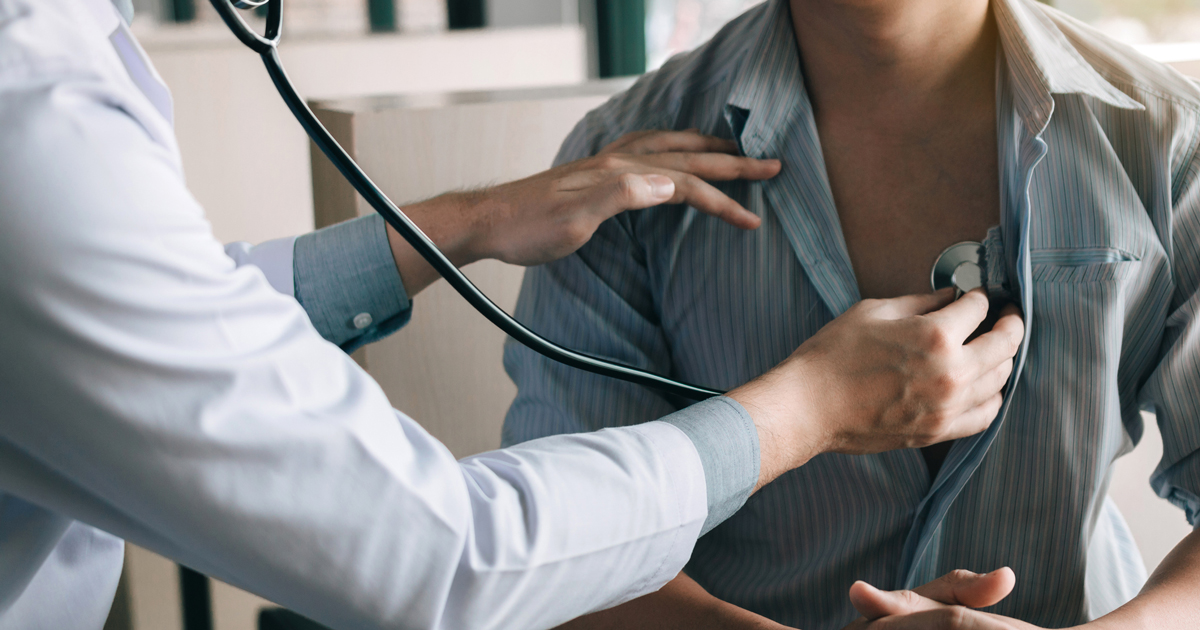Post-COVID syndrome: How's your heart?

We've seen a wide range of responses to COVID-19. Some people suffer no symptoms, not even realizing they have COVID-19. On the other end of the spectrum, there have been mass casualties from COVID-19. Many survivors recover quickly, while others suffer from post-COVID syndrome. As a cardiovascular physician, I've seen patients who have heart failure and heart rhythm problems due to COVID-19.
While older adults are more likely to have long-lasting damage from COVID-19, younger people are not immune. We've seen 40-year-old athletes who have difficulty walking, who have heart failure and who have dementia. That's a tragedy.
How does the coronavirus cause clots?
The virus itself can cause inflammation within the vessels of the arteries in the body. When your arteries get infected, the surface of those arteries gets "sticky." This stickiness is a problem. Your blood platelets start to stick to the walls of the artery. Coagulation factors and thrombin (both proteins that tell your blood to clot) pile up in the area which can occur in any part of the body. Then a blood clot forms, which plugs up those vessels. We call that thrombosis.
Potential issues from blood clots include:
- Stroke (from blocked arteries to the brain)
- Heart attack (from blood clots in the heart)
- Trouble breathing (from blood clots in the lungs)
How does COVID-19 affect the heart?
The virus can also infect different tissues. Without enough blood supply, tissues get damaged. Sometimes it's reversible, sometimes it's not. Sometimes COVID-19 causes ongoing, permanent damage that result in heart failure and rhythm problems.
Some people don't have any heart troubles a week or two after the COVID-19 infection. But then we see them three to six weeks later and they start to show symptoms of heart failure, like swelling in the legs, shortness of breath, fatigue and swelling in the abdomen. This delayed reaction is because it took time for the virus to multiply, and the inflammation causes enough damage to be a problem. If you've had blockage or closure of the blood vessels, it causes a little mini heart attack where a small part of the heart dies. You may not know that on day 10 when only a few of these little mini heart attacks have happened. But if the virus keeps chipping away at heart muscle over the next few weeks, heart failure can happen because there is a total amount of damage to a large portion of the muscle, which is effectively dead. That's the most worrisome part of COVID-19. We also need to keep in mind this likely happens to all tissues and organs, not just the heart and brain.
In one study, 78% of people had heart damage on MRIs taken two months after COVID-19 infection. In another study, half of 1,216 COVID-19 patients had heart abnormalities.
How we treat long-haulers
There's often not a treatment to reverse the damage that's been caused by the virus thus, we really are treating the symptoms and trying to prevent ongoing progression of damage.
- Severe heart failure: could be fatal, could need a transplant or an assist device
- Mild heart failure: experience shortness of breath at rest or after mild exercise
- Minimally symptomatic: clear evidence of damage, but doesn't currently affect quality of life
For all of these conditions, we treat to preserve heart function. We use a handful of medicines to treat heart failure.
Call 800.922.0000 to make an appointment with a primary care provider.
While it's difficult or sometimes impossible to reverse the damage COVID-19 causes, there are a few ways to ease your recovery.
- Talk to your health care provider. Get guidance from your primary care provider about symptoms you're experiencing. Untreated symptoms may get worse over time
- Eat heart-healthy foods. Eat more fruits and vegetables and avoid salty, fatty foods
- Approach exercise slowly. Don't expect to go back to your previous routine right away. It may take time for your heart to heal
Are COVID-19 vaccines safe for people with heart problems?
Yes. The Pfizer, Moderna and Johnson & Johnson COVID-19 vaccines are tremendously safe. It's even more important for people with heart problems (who are at higher risk for severe COVID-19) to get vaccinated. The risk of damage from the virus is much greater than the risk of damage from the vaccines. These vaccines will protect you from heart problems due to COVID-19 infection.
We have to be cautious about linking problems to the vaccines. It's easy to say, "I get up every day, and then the sun rises. I think I make the sun rise." We know that's not true. Even if I oversleep, the sun will still rise. The two events aren't related. Similarly, there's no evidence to indicate COVID-19 vaccines cause Bell's palsy, spike protein shedding or infertility.





